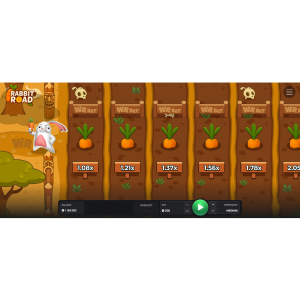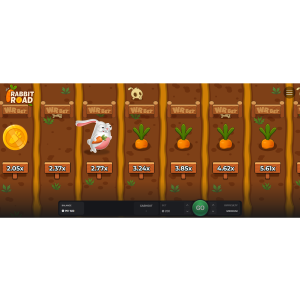Rabbit Road Crash Game — My Honest Player’s Guide
I didn’t expect Rabbit Road to hook me the way it did. On the surface it looks innocent: a little rabbit, a field, a few carrots… nothing dramatic. But once I hit “Start” for the first time, I realized this is not a cute slot — it’s a tiny adrenaline machine disguised as a children’s book.
Let me walk you through what actually happens inside this game, how it feels to play it, and what I learned after way too many rounds where I definitely should’ve cashed out earlier.
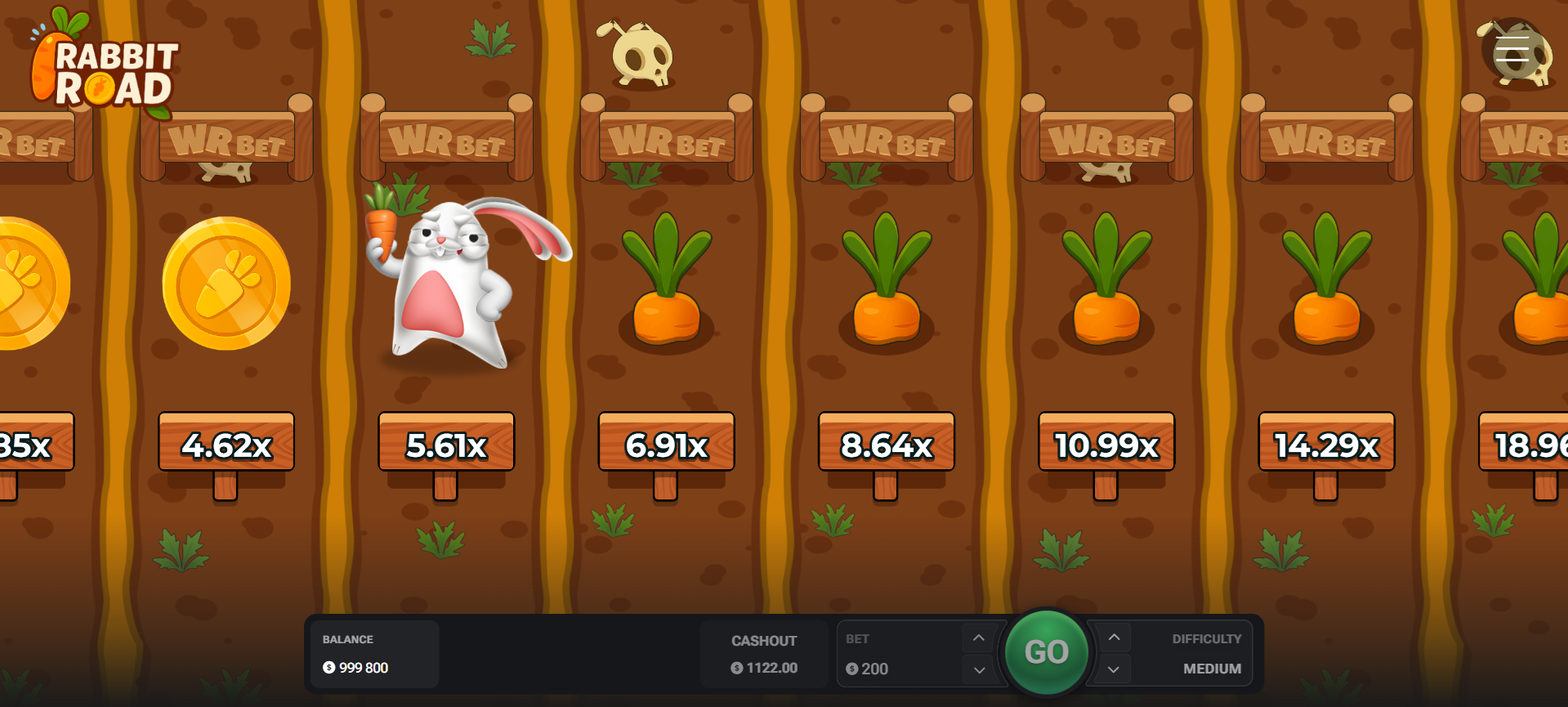
What Rabbit Road Really Is (From the Inside)
If you’ve ever played a crash game before, you already know the premise: numbers go up, tension rises, you try to grab your winnings before everything explodes.
Rabbit Road follows the same concept — but instead of a cold multiplier graph, you’re watching a rabbit hop across a path. Each hop is basically the multiplier climbing. You decide when to pull the brakes. Hesitate for one second too long and your rabbit gets “caught,” and your bet disappears as if it never existed.
This simple setup makes every round feel like a tiny gamble with your own patience and impulse control.
How a Round Plays Out
Let me describe one of my rounds so you understand the vibe.
I pick my bet. Not too high — I’ve learned my lesson.
Then I choose the difficulty. I swear the “Hard” mode feels like the rabbit is running through a minefield blindfolded, so I usually start with something manageable.
I tap Start. The rabbit takes the first hop. ×1.07 — nothing special. Second hop. ×1.15 — alright, maybe I’ll wait a bit. Third hop. ×1.34 — nice. Fourth hop…
And here’s the moment when my brain starts screaming two things at once:
- “Take it NOW!”
- “Hold on, we’re barely getting started.”
If I ignore both voices and just let the rabbit run, the crash inevitably happens the very next step. It’s like the game senses my greed.
But when I do cash out at a decent point, the satisfaction is REAL. Not because I won money — but because I outsmarted my own impulses.
The Interface (Smooth, Fast, Dangerously Comfortable)
What I like here is how immediate everything is. No flashy animations. No spinning wheels. No twenty-second suspense.
A round lasts just long enough to make your heart rate jump a little, then it’s already inviting you into the next one. It’s clean, quick, and relentless — which is exactly what makes it dangerous if you’re not controlling yourself.
Fully mobile-friendly too. I’ve played this on the sofa, on the bus, and once in the kitchen waiting for pasta to boil.
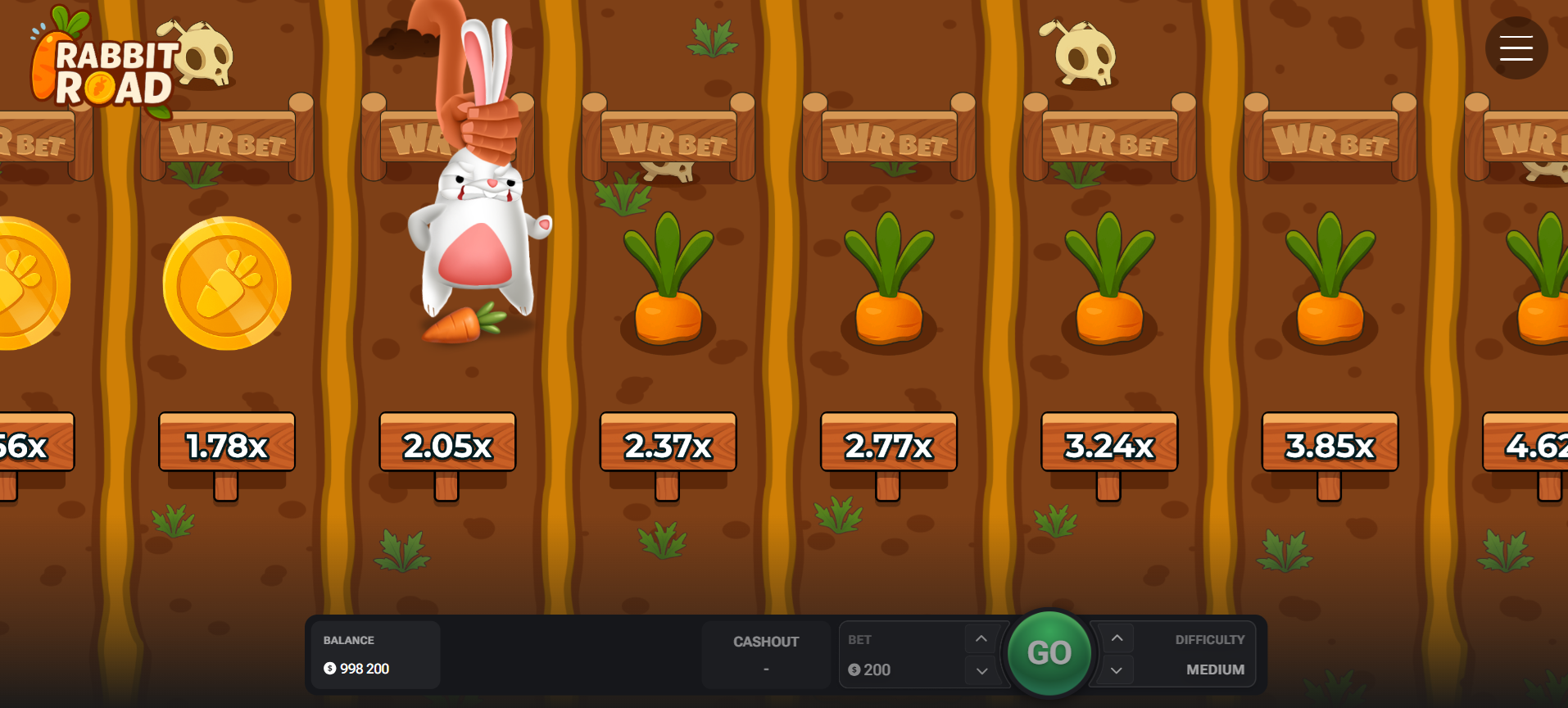
Difficulty Levels — Or How Brave You Think You Are
Rabbit Road usually offers several difficulty modes. They dictate two things:
- How fast your multiplier climbs
- How likely the game is to smack you with a crash
Here’s how I’d describe them in human terms:
- Easy → “You’ll survive more than one hop at least.”
- Medium → “You’re playing for real now.”
- Hard → “Hope you said goodbye to your bet.”
- Hardcore → “This is not risk. This is art.”
I sometimes switch to Hardcore just to feel something, but I never stay there long.
A Practical Guide to Not Losing Your Mind (and Bankroll)
1. Decide your cash-out point BEFORE you start.
If you wait to “feel it,” the only thing you’ll feel is regret.
2. Begin on lower risks.
You need to understand the rhythm before playing the dangerous modes.
3. Don’t chase a multiplier just because you saw it once.
Rabbit Road gives you big multipliers occasionally… specifically so you’ll crave them later.
4. Set a time limit.
The game is fast. Your losses can be faster.
5. Try demo mode first.
Understand the hops, the patterns, how frequently crashes occur — then decide if it’s worth playing with real money.
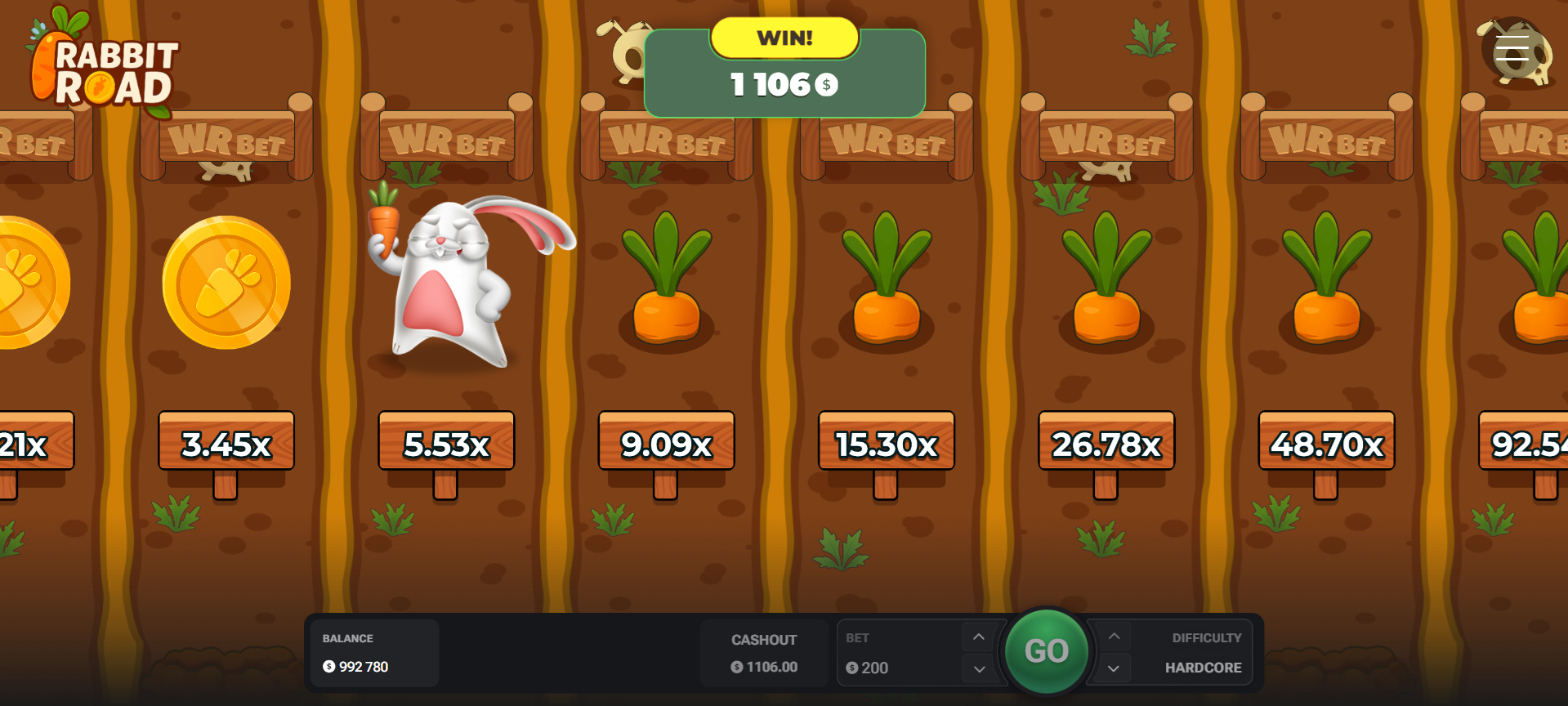
Who Will Actually Enjoy This Game?
You’ll enjoy it if:
- You like quick, sharp decisions.
- You’re okay with high volatility.
- You enjoy crash games more than slots.
- You prefer simplicity over complexity.
You won’t enjoy it if:
- You want predictable wins.
- You prefer long sessions with slow build-up.
- You hate sudden losses.
This is not a relaxing fishing mini-game. It’s more like “catch the moment before it explodes.”
My Personal Verdict
Rabbit Road is simple, unpredictable, and surprisingly intense for something that lasts less than ten seconds per round. When I’m in the mood for fast gameplay, it scratches the itch perfectly. But it’s the kind of game you must approach with strategy — or at least with self-control.
I like it. I respect it. I also don’t trust it — and that’s exactly why it stays exciting.
If you play it, play it smart. The rabbit may be cute, but the game behind it definitely isn’t.



